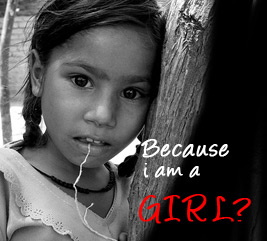Census 2011: Survey in Delhi, Noida reveals male child preferred by 44%
The skewed sex ratio, as revealed in Census 2011, shows that campaigns by the government have not been very effective in curbing female foeticide. There has been a marginal increase in the female population from the last census ; but Delhi’s attitude towards the girl child isn’t anything to flaunt. Girls are welcomed but not preferred, and the figures make the picture clear: there are just 866 girls per 1,000 boys. Boys are still seen as the traditional keepers of the family name. At least, this is what a research undertaken by the Institute of Home Economics (IHE), Delhi University, indicates.
The study has found that as many as 85% women aged between 18 and 40 years in the city are highly aware of this evil as compared to their husbands and mothers/mothers-in-law . In fact, 90% of nearly 200 married men and women surveyed across Delhi and Noida said their religion didn’t allow foeticide; but 3% admitted to have gone for a sex determination test on the sly, mostly because their in-laws insisted.
The study was conducted over six months as part of a UGC-sponsored project. Associate professor at IHE, Parveen Pannu, and assistant professors Yuki Azaad and Neeti Azad, conducted the study in NCR (for areas see graphic). The respondents were divided into three different income groups, with 61% of them being graduates.
“The problem of female foeticide is still grave in the city and is more prevalent in higher income groups. Government should make the law quite stringent to discourage people from going for sex determination,” said Pannu. “But the positive thing is that young married women seemed to have a better attitude towards the girl child during the survey as compared to men and older women,” she added.
As many as 92% respondents agreed that a constant decrease in the number of girls will lead to an increased crime rate. Majority of respondents were aware about the illegality of sex determination under PNDT Act, but 97% of them didn’t know that it could lead to imprisonment for three years. “The government and other agencies should take the social campaigns against female foeticide to a more serious level,” Pannu said, adding that public service announcements should be intensified , as 65% respondents had them as their source of awareness; only 30% of them depended on doctors and mid-wives .
She said: “The government should regularly monitor technology used for such matters. There is this hand-held machine that could be used for sex determination. It could prove to be disastrous.”
